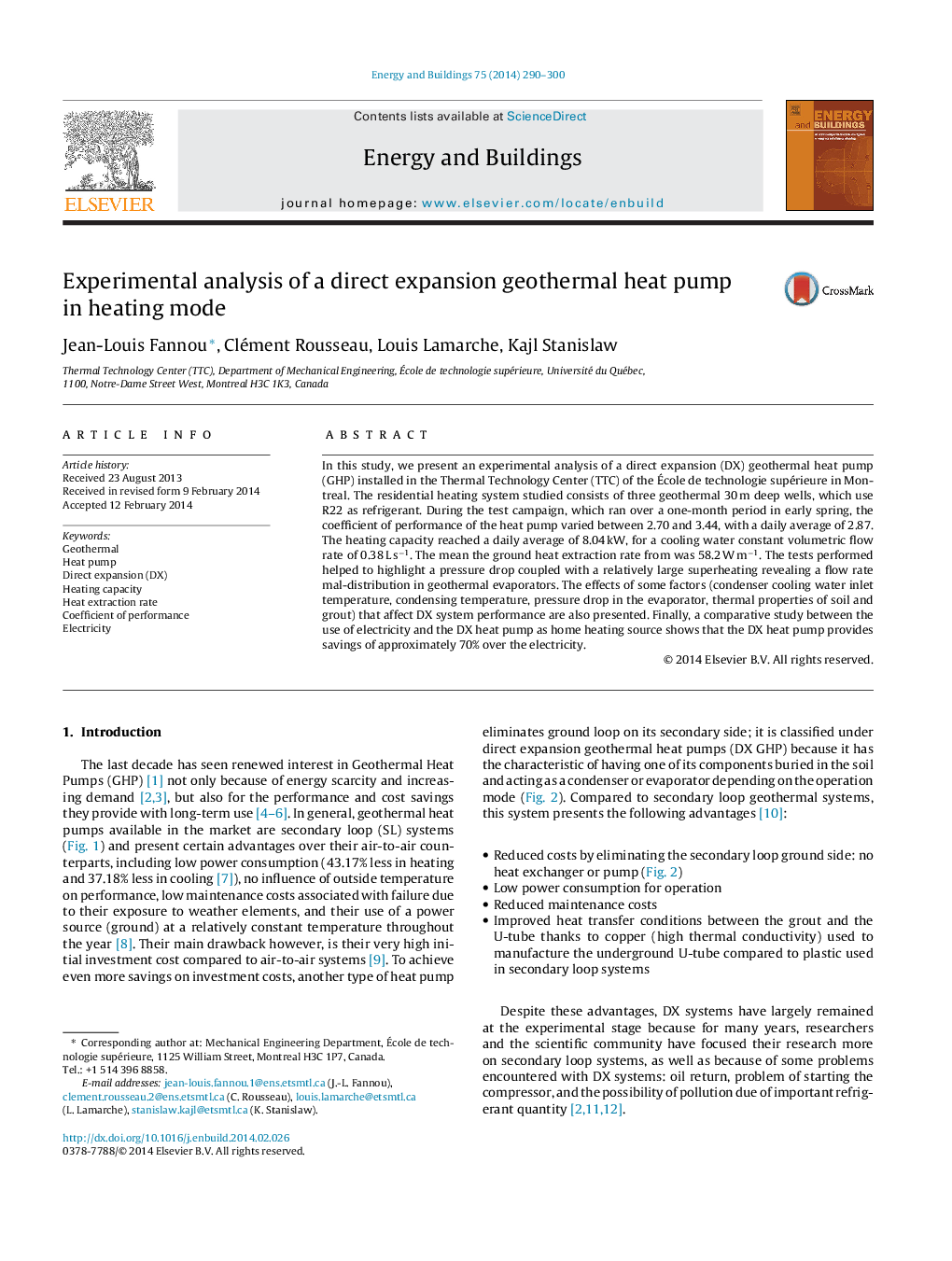| Article ID | Journal | Published Year | Pages | File Type |
|---|---|---|---|---|
| 6733957 | Energy and Buildings | 2014 | 11 Pages |
Abstract
In this study, we present an experimental analysis of a direct expansion (DX) geothermal heat pump (GHP) installed in the Thermal Technology Center (TTC) of the Ãcole de technologie supérieure in Montreal. The residential heating system studied consists of three geothermal 30Â m deep wells, which use R22 as refrigerant. During the test campaign, which ran over a one-month period in early spring, the coefficient of performance of the heat pump varied between 2.70 and 3.44, with a daily average of 2.87. The heating capacity reached a daily average of 8.04Â kW, for a cooling water constant volumetric flow rate of 0.38Â LÂ sâ1. The mean the ground heat extraction rate from was 58.2Â WÂ mâ1. The tests performed helped to highlight a pressure drop coupled with a relatively large superheating revealing a flow rate mal-distribution in geothermal evaporators. The effects of some factors (condenser cooling water inlet temperature, condensing temperature, pressure drop in the evaporator, thermal properties of soil and grout) that affect DX system performance are also presented. Finally, a comparative study between the use of electricity and the DX heat pump as home heating source shows that the DX heat pump provides savings of approximately 70% over the electricity.
Related Topics
Physical Sciences and Engineering
Energy
Renewable Energy, Sustainability and the Environment
Authors
Jean-Louis Fannou, Clément Rousseau, Louis Lamarche, Kajl Stanislaw,
